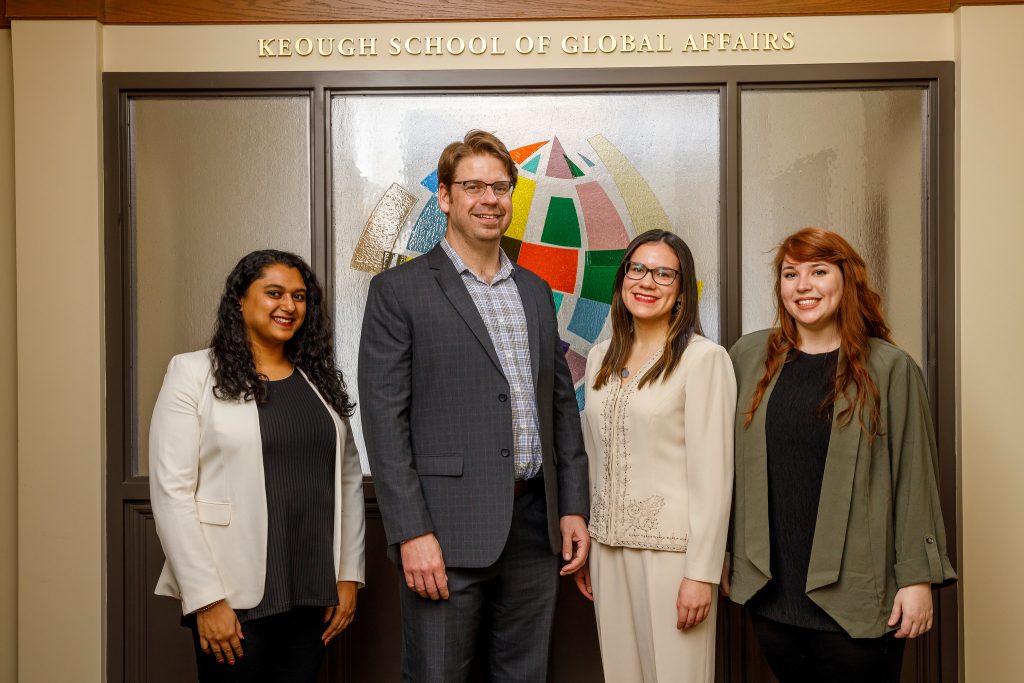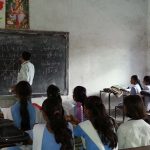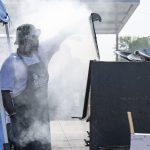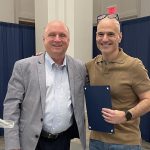At the 2020 Catholic Immigrant Integration Initiative Conference hosted by the Center for Migration Studies and the University of Notre Dame, four students from Notre Dame’s Keough School of Global Affairs presented findings from research projects related to migration.
Notre Dame senior Elsa Barron, a biology and peace studies major, researched public opinion on the construction and opening of the first mosque in Athens, Greece. With funding from the Keough School’s Nanovic Institute for European Studies and mentorship from the Keough School’s Kellogg Institute for International Studies, Barron explored what the new mosque means for the integration of Muslim migrants in Greece.
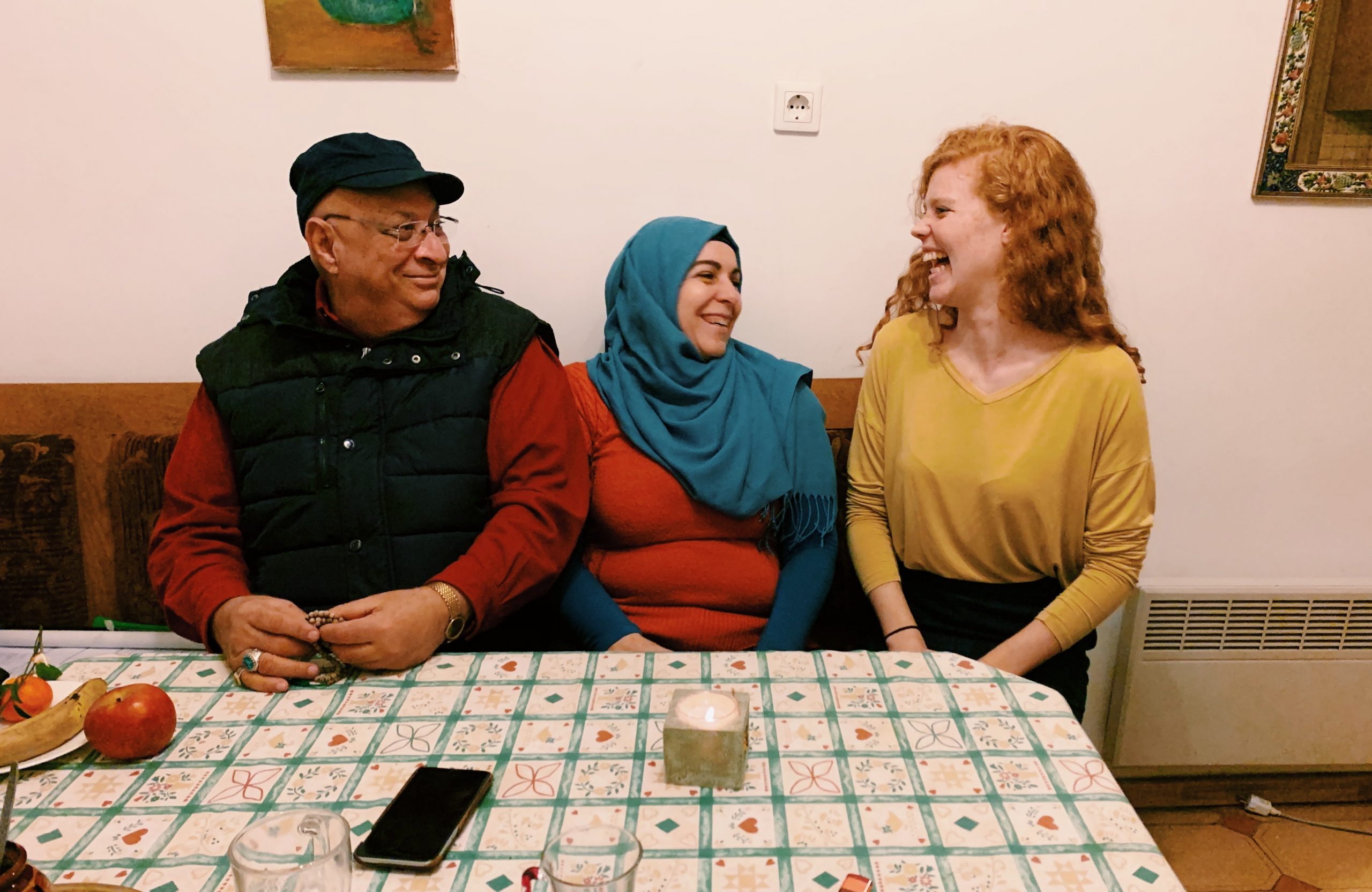
Three master of global affairs students, Syeda (Fiana) Arbab, Sofia Piecuch, and Kara Venzian, presented a research project they pursued in collaboration with Catholic Relief Services (CRS) to identify how refugees in Uganda and internally displaced persons in Myanmar define the concept of home. For the project, Arbab, Piecuch, and Venzian managed 35 field staff members in partnership with local CRS administrators, and connected with 350 refugees through direct interviews, surveys, focus group discussions, and photography activities. The project engaged nearly 400 stakeholders of displaced situations across Uganda and Myanmar. Understanding how refugees and internally displaced people define “home” is important to CRS, because one of the agency’s strategic goals for 2030 is to create a more holistic shelter system.
Due to the COVID-19 pandemic, fieldwork in the summer of 2020 looked different from traditional, on the-ground research. Arbab, Piecuch, and Venzian had planned to travel to Uganda and Myanmar, but instead they worked with CRS staff virtually using WhatsApp, Zoom, Microsoft Teams, often communicating in the middle of the night to accommodate time differences. Piecuch and Venzian worked in Arbab’s apartment, participating in 2 a.m. calls with CRS teams.
“There was a time when we had [multiple interviews] at the same time,” Arbab said. “It’s a studio apartment. I don’t have rooms. So Kara and Sofia once conducted an interview in my bathroom.”
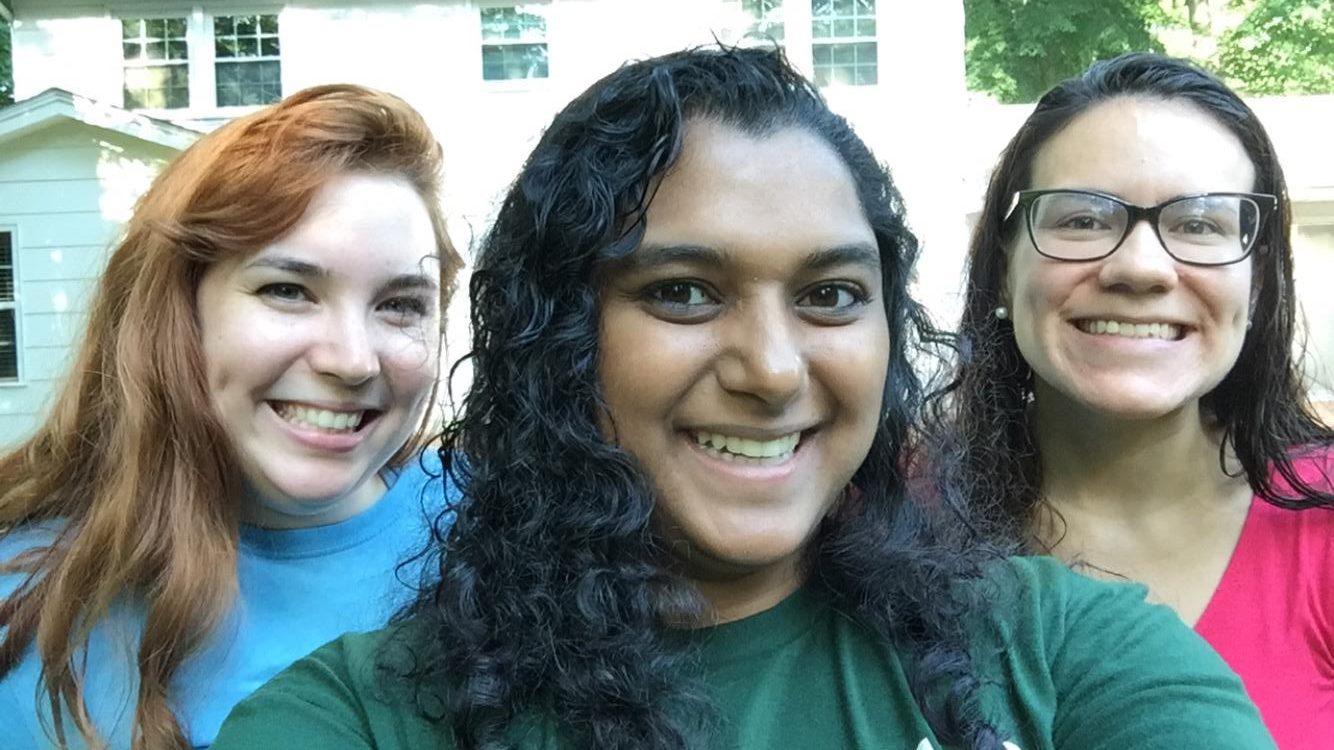
Without time in the field, the students had to rely on local CRS staff to be their eyes and ears.
“It was really beautiful the way they worked with the teams in Uganda and Myanmar,” said Ilaria Schnyder von Wartensee, a faculty advisor for the project. She emphasized that the Notre Dame researchers sought to meet the CRS team where they were—even though they were unable to leave South Bend.
Connecting coursework and practice
Arbab, Piecuch, and Venzian conducted their research as part of the Keough School’s Integration Lab (i-Lab), a core component of the Master of Global Affairs program that includes a year-long research project in partnership with a humanitarian, religious, or development organization, civil society network, government agency, or business. Students work in small teams, serving as professional consultants and creating a bridge between academia and practitioners.
“It’s a year of really busting your tail,” said Tracy Kijewski-Correa, the co-director of the Keough School’s Integration Lab (i-Lab). Faculty in the i-Lab seek out partner organizations that have research needs and are willing to work closely with graduate students over the course of a year. In the past, partners have included Catholic Relief Services, Enseña Chile, Oxfam, the United States Conference of Catholic Bishops, Habitat for Humanity, and others. The i-Lab pairs students with partner agencies based on the students’ academic interests, professional backgrounds, and language skills. The Keough School funds the i-Lab research projects, and partner agencies commit staff time and a dedicated liaison for each project.
In preparation for their i-Lab projects, students take courses in research methodology to enable them to design their a research project according to their partner organization’s needs. Notre Dame faculty members serve as expert advisors, supporting students during the project design phase. Students then spend a summer conducting field research and before graduation deliver a professional product to their partner organization.
The i-Lab project takes the place of a capstone project or thesis paper that is common to many master’s programs. Instead, students deliver the results of their research to their partner agency through presentations, briefings, or in-depth reports.
To learn more about these research projects, listen to Fiana Arbab, Sofia Piecuch, Kara Venziuan, and Elsa Barron share their findings on the CMSOnAir podcast.
Watch their presentations at the Catholic Immigrant Integration Initiative Conference.
Originally published at cmsny.org.
Top photo: Left to right are MGA student Syeda (Fiana) Arbab, Joe Weber (Catholic Relief Services liaison), and MGA students Sofia Piecuch and Kara Venzian. The MGA students are conducting research with CRS for a research project on migration through the Keough School’s Integration Lab (i-Lab). This photo was taken at the i-Lab Global Partner Forum in February 2020.
